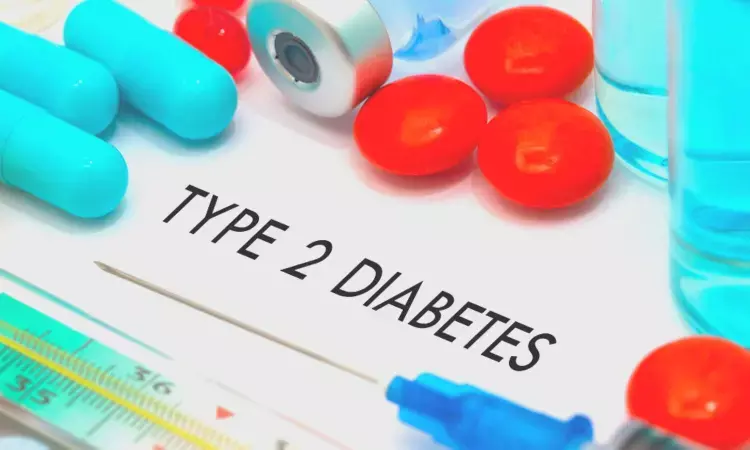- Home
- Medical news & Guidelines
- Anesthesiology
- Cardiology and CTVS
- Critical Care
- Dentistry
- Dermatology
- Diabetes and Endocrinology
- ENT
- Gastroenterology
- Medicine
- Nephrology
- Neurology
- Obstretics-Gynaecology
- Oncology
- Ophthalmology
- Orthopaedics
- Pediatrics-Neonatology
- Psychiatry
- Pulmonology
- Radiology
- Surgery
- Urology
- Laboratory Medicine
- Diet
- Nursing
- Paramedical
- Physiotherapy
- Health news
- Fact Check
- Bone Health Fact Check
- Brain Health Fact Check
- Cancer Related Fact Check
- Child Care Fact Check
- Dental and oral health fact check
- Diabetes and metabolic health fact check
- Diet and Nutrition Fact Check
- Eye and ENT Care Fact Check
- Fitness fact check
- Gut health fact check
- Heart health fact check
- Kidney health fact check
- Medical education fact check
- Men's health fact check
- Respiratory fact check
- Skin and hair care fact check
- Vaccine and Immunization fact check
- Women's health fact check
- AYUSH
- State News
- Andaman and Nicobar Islands
- Andhra Pradesh
- Arunachal Pradesh
- Assam
- Bihar
- Chandigarh
- Chattisgarh
- Dadra and Nagar Haveli
- Daman and Diu
- Delhi
- Goa
- Gujarat
- Haryana
- Himachal Pradesh
- Jammu & Kashmir
- Jharkhand
- Karnataka
- Kerala
- Ladakh
- Lakshadweep
- Madhya Pradesh
- Maharashtra
- Manipur
- Meghalaya
- Mizoram
- Nagaland
- Odisha
- Puducherry
- Punjab
- Rajasthan
- Sikkim
- Tamil Nadu
- Telangana
- Tripura
- Uttar Pradesh
- Uttrakhand
- West Bengal
- Medical Education
- Industry
What ADA's recent consensus on hyperglycemia management has to say about GLP-1 receptor agonists

USA: A glucagon-like peptide-1 receptor agonist (GLP-1 RA) should be used to reduce MACE in people with established cardiovascular disease (CVD), a recent consensus by the American Diabetes Association (ADA) and the European Association for the Study of Diabetes (EASD) has stated.
The new consensus statement for hyperglycemia management in type 2 diabetes was presented at the 58th EASD Annual Meeting in Stockholm, Sweden, and subsequently published in the ADA journal Diabetes Care and EASD journal Diabetologia.
The authors suggest considering a GLP-1 RA with proven cardiovascular outcome benefit to reduce MACE in people with CKD and an eGFR $20 ml/min per 1.73 m2 and a UACR >3.0 mg/mmol (>30 mg/g) in whom treatment with SGLT2 inhibitors is not well-tolerated is contraindicated.
The report also recommends the use of a GLP-1 RA with proven benefits to reduce major adverse cardiovascular events (MACE) in patients without established CVD but with multiple cardiovascular risk factors (such as obesity, age 55 years, hypertension, dyslipidemia, smoking, or albuminuria). Further, the decision to use a GLP-1 RA or SGLT2i with proven benefit should not be dependent on metformin use.
GLP-1 RA reduces MACE, which is likely to be independent of baseline HbA1c. "In patients with chronic kidney disease (CKD), heart failure, multiple risk factors for CVD, or established CVD, the decision to use a GLP-1 RA with proven benefit should be independent of baseline HbA1c," the authors wrote in their statement.
GLP-1 receptor agonists increased glucagon suppression and glucose-dependent insulin secretion, curb post-meal glycaemic increments, decelerate gastric emptying, and reduce energy intake, appetite, and body weight, the authors note.
"Beyond HbA1c improvement in adults with type 2 diabetes, specific GLP-1 RA has also been approved for reducing MACE risk in adults with type 2 diabetes with established CVD (liraglutide, dulaglutide, and subcutaneous semaglutide) or multiple cardiovascular risk factors (dulaglutide) and for management of chronic weight (subcutaneous semaglutide titrated to 2.4 mg once weekly; subcutaneous liraglutide titrated to 3.0 mg once daily)," they wrote in their statement.
The researchers also mentioned that the recent higher dose GLP-1 RA studies have shown incremental glucose and weight benefits at higher GLP-1 RA doses, with higher proportions of people achieving glycemic targets.
The most common side effects of GLP-1 RA are gastrointestinal in nature (vomiting, nausea, and diarrhea) which tend to occur during initiation and decline over time. To mitigate gastrointestinal effects, gradual up-titration is recommended. GLP-1 RA promotes a sense of satiety, facilitating a reduction in food intake.
GLP-1 receptors are shown to have a high to very high glucose-lowering efficacy, intermediate to high weight loss, and low inherent risk of hypoglycemia.
Data from cardiovascular outcomes trials (CVOTs) on other areas of interest (pancreatic cancer, pancreatitis, and medullary thyroid cancer) indicate no increase in these risks with GLP-1 RA.
GLP-1 RAs are contraindicated in people at risk of rare medullary thyroid cancer, that is, those with a history or family history of medullary thyroid cancer or multiple endocrine neoplasia type 2.
Reference:
Davies, M.J., Aroda, V.R., Collins, B.S. et al. Management of hyperglycaemia in type 2 diabetes, 2022. A consensus report by the American Diabetes Association (ADA) and the European Association for the Study of Diabetes (EASD). Diabetologia (2022). https://doi.org/10.1007/s00125-022-05787-2
Dr Kamal Kant Kohli-MBBS, DTCD- a chest specialist with more than 30 years of practice and a flair for writing clinical articles, Dr Kamal Kant Kohli joined Medical Dialogues as a Chief Editor of Medical News. Besides writing articles, as an editor, he proofreads and verifies all the medical content published on Medical Dialogues including those coming from journals, studies,medical conferences,guidelines etc. Email: drkohli@medicaldialogues.in. Contact no. 011-43720751


